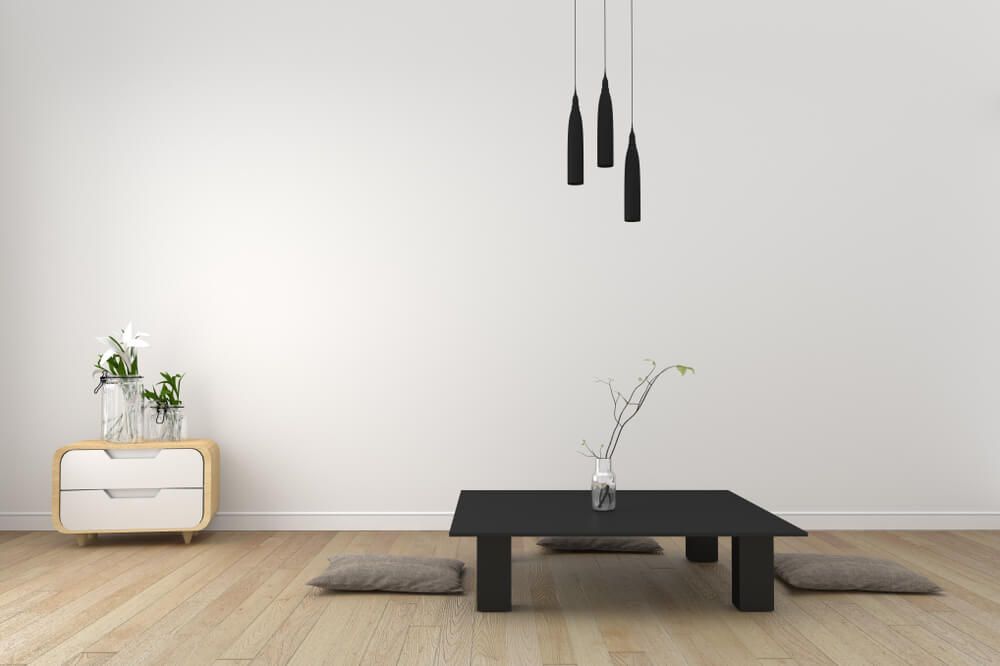While some enjoy the best and newest products, more and more people realize that they can live with fewer external elements, betting on a minimalist life.
Having a minimalist lifestyle means reducing goods only to what is necessary and, in a way, transcending matter. We are talking about a philosophy lived and defended throughout history, by ancient Greek philosophers or Zen Buddhist masters.
- Today.
- The minimalist lifestyle is so attractive because it is a kind of kryptonite for the people who make up the work-money-consumption circle.
According to Art Markman, professor of psychology and marketing at the University of Texas, each generation renews the previous generation and minimalism seems an immanent gamble for many of the new generations.
The new generations have responded to the era of over-consumption in recent decades. “A lot of things are disposable and there are a lot of ways to promote consumption, so people react against it,” he says. For many of the new generations, making the same decisions as parents is simply not an option.
On the other hand, part of the appeal of minimalism is its spiritual side, and the hope that it will be good for our spiritual side (this feeling that has been somewhat overlooked with the loss of the influence of religion in society). , minimalist life is also linked to social awareness.
Choosing what you buy means punishing companies that do not respect decent working conditions for their workers, reducing the consumption of natural resources, reducing pollution, energy consumption, etc.
All these ideals are fully in line with the concerns of the new generations.
Yes, it is true that the world in which we live, by definition, is a chaotic and unpredictable thing, a disorder to which we often contribute to our way of life.
Many of us have jobs that we don’t like, we have to buy everything that advertising makes popular, we judge with phrases that we don’t really feel, we eat foods that hurt us, we spend time with people we don’t like. I don’t want to be . . .
And if we do, it’s not because no one imposes on us, but because we decide to do it, we decide that we have no choice or that it’s best for us.
However, we are not entirely guilty of that. Ever since I was a young national, society and the middle?To live like this, widespread publicity everywhere, the indoctrination received at school, in family and in other circles of influence, our circle of friends?
Thus described, it is not surprising that life seems like a disaster, the good thing is that we can intervene positively in the disaster leaving empty spaces through which light passes, we can design a less complicated and more meaningful life, following a minimalist lifestyle.
The key idea of minimalism is to get rid of what doesn’t add value to your life, eliminate disorder, distractions and unhealthy relationships, give more space to the essentials and our well-being, such as creativity, love and pleasure.
That’s why minimalism or minimalist life intentionally tries to focus on what really matters and put aside what doesn’t matter, that is, it’s about enjoying life more with less, we give you some ideas of how it can be achieved:
Fumio Sasaki says that “minimalism is a lifestyle where you minimize your possessions. “For Sasaki, “living only with the essentials not only offers superficial benefits such as the pleasure of an orderly room or the simple ease of cleanliness, but also brings fundamental change. “
By opting for a minimalist lifestyle, Sasaki has created his own definition of happiness.
In this way, he tells us that the more things we have, the more power they have over us. How much more do you depend on something, the more that influences your ability to be happy, really?Enjoy?life.
We understand that our happiness depends on it, and we always strive for more, fearing that one day we will run out. A “just in case”, where we end up being slaves to the clock and the ties that sound every hour, with little or no rest.

